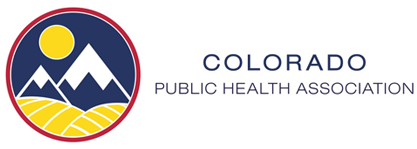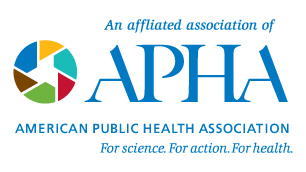Public Health Nursing ArchivesArchived April 28, 2023Public Health Nursing in a PandemicPublic health nursing has a long and rich history that paints a story of resilience, advocacy, and compassionate care centered on prevention of illness for individuals, families and communities across the nation. Public health nurses (PHNs) experience many of the same challenges in 2020 as Lillian Wald and her peers did in 1890. Like those pioneering nurses, PHNs in Colorado are charged with addressing a new pandemic, while monitoring diseases and actively engaging in direct services. Coronavirus (COVID-19/SARS-CoV-2) is one of the greatest challenges that public health has experienced. PHNs across the state have accepted that challenge, and have again demonstrated amazing resilience and depth. In March of 2020, local public health departments responded by adapting how public health services were delivered. Changes included offering services via telehealth when Stay at Home orders were implemented. Clinical services have been drastically reduced and altered to safely address the public health emergency. Programs managed by and staffed with public health nurses were re-designed and re-imagined so that core services could continue. One example is how sexual health programs have continued to provide crucial access to birth control and screening services. This has been accomplished with an innovative blending of staff who work remotely in coordination with clinical staff available for office appointments. Immunization services including the administration of vaccines, in safe, clinical settings, continues to be a priority for public health nurses as flu season approaches and in the expected event of a COVID-19 vaccine. Additionally, nurse home visitation programs, managed and led by PHNs, swiftly shifted their in-person, intensive nursing assessments to electronic telehealth platforms. These are only a few examples of how public health nurses and our nursing partners in the education system are facing this pandemic with actions demonstrating the depth of their nursing training, education, and experience. Local public health departments, both rural and urban, continue to face the challenges of balancing essential direct services with new roles created by the requirements of COVID-19 response. PHNs, through education and training, possess the ideal set of skills required for many response roles, such as incident command leaders, case investigators, staffing COVID-19 call centers, and providing case management for individuals needing resources and referrals. Nursing professionals are prepared to assess the multiple levels of impact the pandemic has on individuals and the community. Many rural PHNs find themselves assuming numerous roles in their counties’ responses to COVID-19 in addition to the demands of the essential services they regularly provide. The burden on rural PHNs is significant, as too often they are one of few PHNs in the county. Large health departments are faced with balancing community contracts and grants, while addressing the acute needs of COVID response. This results in a decrease in staff available to fulfill non-COVID-19 obligations. In all scenarios, agencies are tasked with managing community COVID-19 requirements in addition to providing a safe work environment for employees. The pandemic has demonstrated the resiliency, expertise, and versatility of Colorado’s public health nurses. However, as the COVID-19 outbreak continues to demand more PHN time and effort, there is increasing concern about the capacity to deliver timely preventive health services such as childhood immunizations, sexual health services, and support for undeserved communities. There is increasing apprehension about state and local government budget cuts. As public health nurses step up to meet the increased demands brought on by the pandemic, the possibility of burn-out due to the increased workload is worrisome and real. Public health nurses are passionate about serving communities, and most feel fortunate to be able to help people across the continuum of individual and community health. The field of public health nursing offers the opportunity to work on community initiatives, collaborate with local agencies, and still provide the direct human touch that initially draws many into nursing. Unfortunately, budget cuts place undue stress on the PHN who is already working with minimal funding. Public health cannot afford to burn out the workforce needed to protect our communities. This is a call to advocate for public health nursing, and to support those working in the trenches of COVID-19 screening, investigations, and reporting, while maintaining essential public health functions. The first ask is for community partners and decision makers to provide the flexibility, understanding, reflection, and advocacy this profession needs to navigate these challenging days. Next, policy makers can help by ensuring access to personal protective equipment, testing supplies, case investigations, trained staff, technical assistance, and funding for training. Each is critical for protecting public health nurses and community members. Additionally, it is essential to maintain a strong public health infrastructure that includes a diverse pool of professional nurses. Public health is part of the spectrum of health care and PHNs are experts in their field. Finally, policy makers can assure adequate and sustainable funding that supports a multilevel approach to public health that includes pandemics and essential public health services delivered by PHNs and their partners in school nursing. School nurses are another type of public health nurse who, with innovative policy and collaboration, cooperation, and communication, function alongside their local public health partners. In conclusion, during the COVID-19 pandemic, public health nurses have once again been a crucial part of history in front line care and decision making. PHNs have faced COVID-19 with grace, compassion, professionalism and innovation, and will continue to be essential when a vaccine becomes available. PHNs will be at the table to discuss vaccine messaging for communities and strategic planning for safe and equitable distribution. When a viable vaccine is available, the hands of a PHN will be one of the very human touches that delivers it. Mary Doran, BSN, RN Kimberly Boyd, RN, NP, ND
|

